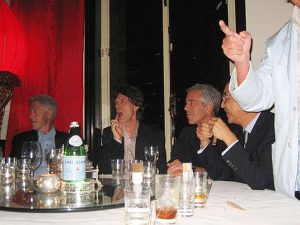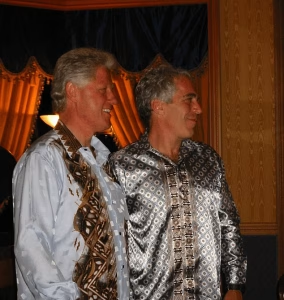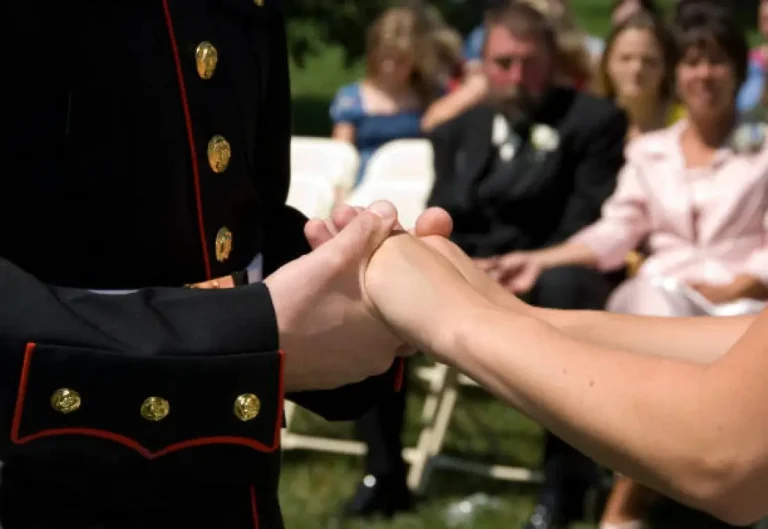When Love Leaves Behind More Than Memories
A gripping tale of how one man’s wife left him an inheritance that would transform his understanding of their entire marriage—and threaten everything he held dear
Chapter 1: The Deathbed Promise
Love’s Final Gift
The hospital room smelled of antiseptic and approaching sorrow. Maria had been battling illness for months, her once-vibrant spirit confined to the sterile white sheets that had become her world. As her husband Carlos held vigil beside her bed, he never imagined that her final words would change his life in ways he could never have anticipated.
Terminal illness affects millions of families worldwide, with healthcare costs and emotional burdens creating immense stress for surviving spouses and children. The National Institute on Aging reports that end-of-life planning conversations, while difficult, are crucial for families preparing for life transitions.
Maria’s breathing had grown increasingly labored over the past week, her grip on Carlos’s hand the only indication that she remained present with him. Their twenty-year marriage had been built on trust, shared dreams, and the modest income they had carefully managed to provide for their teenage son, Miguel.
As financial advisors often emphasize, couples who maintain open communication about money matters and future planning are better prepared for unexpected life changes. However, what Carlos was about to discover would challenge everything he thought he knew about financial transparency in marriage.
The Whispered Revelation
“Carlos… mi amor…” Maria’s voice was barely audible above the steady beeping of medical equipment. Her eyes, once bright with laughter, now reflected the weariness of someone preparing to leave this world. “In the closet… there are five million pesos… I saved them… for you and Miguel…”
Estate planning experts recognize that deathbed revelations about hidden assets can create complex legal and emotional challenges for surviving family members. Financial secrecy within marriages, while sometimes well-intentioned, often leads to complications during estate settlement and grief processing.
Carlos felt his heart skip a beat. Five million pesos represented more money than they had ever dreamed of possessing. Throughout their marriage, they had lived paycheck to paycheck, carefully budgeting every expense and saving whatever they could for Miguel’s education and their retirement.
Personal finance research shows that hidden savings are more common than many people realize, with studies indicating that one in five married individuals maintain secret financial accounts. The motivations range from surprise gifts to financial security concerns to more complex reasons involving family protection.
The magnitude of this revelation overwhelmed Carlos’s grief-stricken mind. As tears streamed down his face, he felt a conflicting mixture of sorrow at losing his beloved wife and unexpected hope for financial security that could transform Miguel’s future opportunities.
Questions Without Answers
As Maria’s breathing gradually grew more shallow and irregular, Carlos’s mind raced with questions he would never have the chance to ask. How had she accumulated such a substantial sum without his knowledge? Where had the money come from during all those years of careful budgeting and modest living?
Marriage counselors and financial therapists often work with couples to address financial infidelity—the keeping of financial secrets that can undermine trust and create relationship tensions. However, the discovery of hidden assets after a spouse’s death presents unique challenges for grief processing and family adjustment.
The hospital room grew quieter as evening approached. Medical staff moved efficiently but respectfully, understanding that family members needed privacy during these final moments. Carlos held Maria’s hand tightly, whispering words of love and gratitude for their years together.
Bereavement specialists emphasize that complicated grief can occur when loss is accompanied by shocking revelations or unresolved questions about the deceased person. The mixture of grief and surprise that Carlos experienced represented a common but challenging emotional situation.
As Maria passed away peacefully that evening, Carlos felt the profound emptiness that accompanies the loss of a life partner. However, beneath his overwhelming sadness lay a growing curiosity about the inheritance she had mentioned—and a desperate hope that this unexpected financial security would help him provide for Miguel’s future.
Chapter 2: The Discovery
Racing Hearts and Rising Hope
That night, after completing the difficult arrangements at the hospital and ensuring that Miguel was safely asleep at his sister’s house, Carlos found himself alone in the home he had shared with Maria for fifteen years. The silence felt oppressive, broken only by the ticking of the kitchen clock that had marked time through countless family moments.
Grief psychology research indicates that surviving spouses often experience complex emotions during the first days following a partner’s death. The combination of profound loss and practical concerns can create overwhelming stress that affects decision-making and emotional processing.
Unable to sleep or rest, Carlos found himself drawn to the old wooden closet in their bedroom—the same closet where Maria had claimed to have hidden the life-changing sum that would secure their son’s future. His hands trembled with anticipation and nervousness as he approached the familiar piece of furniture.
Financial security represents one of the most fundamental human needs, according to Maslow’s hierarchy. For families living with economic uncertainty, the promise of substantial assets can trigger powerful emotional responses including hope, anxiety, and desperate anticipation.
The closet contained the accumulated possessions of their shared life: clothing, photo albums, important documents, and the various mementos that couples collect over decades of marriage. Carlos systematically searched through each section, his heart pounding with increasing intensity as he looked for evidence of the promised inheritance.
The Metal Box Discovery
In the lowest corner, hidden behind old shoes and forgotten belongings, Carlos’s searching hands encountered something unexpected: a heavy metal box secured with a sturdy padlock. The weight and solid construction suggested valuable contents—perhaps the cash savings that Maria had mentioned in her final words.
Home security experts often recommend fireproof safes and secure storage solutions for important documents and valuable assets. However, the discovery of unknown containers in a deceased spouse’s belongings can create anxiety about potential contents and their implications for family security.
Carlos examined the metal box carefully, noting its sturdy construction and the heavy-duty padlock that secured its contents. The box appeared to have been undisturbed for considerable time, with dust and minor corrosion indicating long-term storage in the closet’s protected environment.
Estate settlement procedures typically involve careful documentation of all discovered assets, including contents of safety deposit boxes, home safes, and other secured storage containers. The legal implications of hidden assets can affect tax obligations and inheritance distribution according to applicable laws.
As Carlos prepared to break open the padlock using tools from his home workshop, he felt a mixture of excitement and apprehension. The possibility of discovering life-changing wealth competed with an growing uneasiness about why Maria had kept such important information secret throughout their marriage.
The Shocking Reality
The moment Carlos opened the metal box, his world transformed from hopeful anticipation to absolute horror. Instead of the carefully saved peso bills he had expected to find, the container held something that challenged his understanding of reality and threatened his mental stability.
Forensic science and criminal investigation procedures involve careful handling of suspicious materials and evidence preservation to maintain legal integrity. However, civilians who encounter potentially criminal evidence often lack the training and emotional preparation for such discoveries.
The overwhelming smell that emanated from the opened box suggested organic decomposition and long-term storage of biological materials. Carlos recoiled in horror and disgust, his mind struggling to process the disconnect between his expectations and the shocking reality before him.
Psychological trauma can result from unexpected exposure to disturbing sights, smells, or situations that overwhelm an individual’s coping capacity. The sudden shift from hope to horror can create lasting emotional impact and require professional therapeutic intervention.
As Carlos staggered backward, gasping for fresh air and struggling to comprehend what he had discovered, a small notebook fell from the bottom of the metal container. The familiar handwriting on its cover immediately identified it as Maria’s personal journal—and promised answers to questions he was no longer sure he wanted to have answered.
Chapter 3: The Confession
Words from Beyond the Grave
With trembling hands and a racing heart, Carlos opened the water-damaged notebook that had fallen from the metal box. The pages were yellowed with age and moisture, but Maria’s distinctive handwriting remained clearly legible—a final communication from the woman he had loved and thought he had completely known.
Personal journals and private writings often reveal hidden aspects of individual lives that family members never suspected. Psychology research on personal disclosure shows that many people maintain private thoughts and experiences that they never share even with their closest relationships.
The first page contained a direct message addressed to Carlos himself, written in the careful script that he remembered from birthday cards, shopping lists, and the thousand small notes that had punctuated their shared life. However, the content of this final message revealed a completely different side of the woman he had married.
Marriage therapy specialists recognize that long-term relationships often contain undisclosed secrets and experiences that partners choose not to share. While some secrets involve minor omissions, others can fundamentally change the understanding between spouses and challenge the foundation of trust.
“My beloved Carlos,” the notebook began, “if you are reading these words, it means that I am gone and you have discovered the box I hoped you would never have to find. The five million pesos I mentioned are real—but they come with a price that I pray you will never have to pay.”
Ten Years of Hidden Truth
As Carlos continued reading, Maria’s confession revealed a decade-long secret that explained not only the source of their unexpected wealth but also the mysterious changes in her behavior that he had attributed to work stress and family responsibilities.
Criminal psychology research shows that ordinary citizens can become unwilling participants in illegal activities through coercion, threats, and circumstances beyond their control. Witness protection programs and victim services exist precisely because criminals often target innocent people to ensure silence and compliance.
According to the notebook, ten years earlier, Carlos had unknowingly accumulated gambling debts with dangerous individuals who operated outside the legal system. When he had failed to repay these debts on schedule, representatives of this criminal organization had approached Maria with an ultimatum that would change their lives forever.
Organized crime operations often target family members of debtors to ensure payment and compliance with their demands. Law enforcement agencies recognize that criminal groups frequently use intimidation and threats against innocent family members to maintain control over their operations.
The notebook described a rainy evening when a hooded figure had appeared at their door with a wrapped bundle and specific instructions that would ensure Carlos’s safety and their family’s continued existence. Maria had agreed to become an unwilling custodian of evidence that criminal investigators would find extremely valuable.
The Price of Silence
Maria’s detailed account revealed that the monthly payments she had received were hush money—compensation for maintaining silence about criminal activities and keeping physical evidence that could implicate powerful individuals in serious crimes. The substantial sums had accumulated over years of enforced complicity.
Witness intimidation and evidence tampering represent serious federal crimes that carry lengthy prison sentences. Criminal organizations invest heavily in ensuring that potential witnesses remain silent and that incriminating evidence disappears or becomes inaccessible to law enforcement.
The notebook explained that Maria had never dared to spend the money because she understood that it represented payment for criminal participation. She had lived in constant fear that discovery of the arrangement would result in violent retaliation against their entire family.
Psychological trauma from long-term criminal coercion can create lasting mental health effects including anxiety disorders, depression, and post-traumatic stress. Victims of criminal intimidation often suffer silently for years without seeking help due to fear of retaliation.
The final pages of Maria’s confession contained her greatest fear: that the criminal organization would eventually return to reclaim the evidence and eliminate witnesses who could potentially threaten their operations. Her dying wish was that Carlos would protect Miguel and flee if anyone came looking for the hidden contents.
Chapter 4: The Watchers Return
Signs of Danger
As Carlos finished reading Maria’s confession, the reality of his situation began to settle with terrifying clarity. He was now the sole keeper of criminal evidence that powerful people desperately wanted to keep hidden—and the only person who knew the truth about his wife’s decade of forced silence.
Criminal investigation specialists understand that evidence custodians become high-value targets for criminal organizations seeking to eliminate potential threats. Witness protection programs exist because ordinary citizens often lack the resources and expertise to protect themselves from professional criminals.
The house suddenly seemed vulnerable and exposed. Carlos realized that the familiar neighborhood where they had lived peacefully for years might now conceal watchers and threats that could materialize at any moment. Every shadow and sound took on sinister significance.
Home security experts recommend multiple layers of protection for individuals facing potential threats, including reinforced doors, security cameras, alarm systems, and emergency communication plans. However, protection from organized criminal activity often requires professional law enforcement intervention.
Carlos carefully returned Maria’s notebook to his jacket pocket and securely closed the metal box, pushing it back into its hidden corner of the closet. Every instinct told him to call police, but Maria’s warnings about criminal connections within local government made him question who could be trusted.
The Night Visitors
Outside, the neighborhood dogs that normally provided a steady chorus of evening sounds had fallen unusually silent. Animal behavior specialists note that domestic animals often react to human presence and activity before people become aware of potential threats.
Carlos checked on Miguel, sleeping peacefully in his bedroom, unaware that their lives had been forever changed by the day’s discoveries. Child protection considerations immediately took priority in Carlos’s mind—whatever decisions he made must prioritize his son’s safety above all other concerns.
Surveillance techniques used by criminal organizations often involve extended observation of target locations to determine patterns, identify vulnerabilities, and plan operations. Professional criminals typically gather extensive intelligence before taking action.
The soft knock at the front door came just as Carlos was considering his limited options. The sound was deliberate and measured—not the casual knock of a neighbor or the urgent rap of an emergency. This was the knock of someone who knew exactly why they were there.
Face to Face with the Past
Carlos approached the door with growing dread, his mind racing through possible responses and escape routes. Personal safety experts recommend never opening doors to unknown visitors, particularly during late evening hours when criminal activity increases.
Through the peephole, Carlos could see a figure standing motionless on his front porch—tall, well-dressed, and patient. The visitor displayed none of the nervous energy or obvious weapons that Carlos might have expected from a criminal threat, but the stillness itself was somehow more menacing.
Criminal psychology research shows that professional criminals often present calm, controlled demeanors designed to avoid attracting attention or triggering defensive responses. Intimidation tactics frequently rely on implied threats rather than overt violence.
Against his better judgment, Carlos opened the door, maintaining the security chain that provided minimal physical protection but allowed limited communication. The man outside spoke in a voice that carried absolute authority and unmistakable menace.
“It’s time,” the visitor said simply, his words containing volumes of unspoken meaning. Carlos understood immediately that this moment represented the culmination of Maria’s ten-year secret and the beginning of a new chapter that would test everything he thought he knew about survival and family protection.
Chapter 5: The Impossible Choice
Confronting the Truth
The man standing at Carlos’s door possessed the kind of quiet confidence that comes from years of getting exactly what he wants through methods that most people prefer not to contemplate. His expensive clothing and professional demeanor suggested successful business operations—but Carlos now understood that this success came from activities far outside legal boundaries.
Organized crime operations in modern society often operate behind facades of legitimate business activity. Criminal enterprise investigations reveal complex networks that combine legal and illegal activities to maximize profits while minimizing law enforcement detection.
“Your wife was very cooperative for many years,” the visitor continued, his tone conversational but underlying threat unmistakable. “She understood the importance of maintaining certain arrangements that benefited everyone involved. Now that she’s gone, we need to discuss how those arrangements will continue.”
Criminal coercion tactics often involve presenting illegal demands as reasonable business propositions. Psychological manipulation techniques help criminals maintain control over victims by framing compliance as mutually beneficial rather than forced participation in criminal activity.
Carlos felt his mouth go dry as he realized that Maria’s death had not ended their family’s involvement with dangerous people—it had simply transferred the burden of silence and cooperation to him. The money hidden in their home represented not freedom but continued entanglement in criminal operations.
The Network Revealed
Through careful questioning and implied threats, the visitor revealed the scope of the criminal organization that had controlled Maria’s life for the past decade. Money laundering, political corruption, and violence against witnesses formed the foundation of an enterprise that operated throughout their region.
Federal law enforcement agencies recognize that regional criminal networks often include corrupt officials within police departments, judicial systems, and government agencies. This corruption makes traditional law enforcement response ineffective and dangerous for potential witnesses.
“Your gambling problem created opportunities for mutual benefit,” the man explained with false reasonableness. “Your wife provided valuable services in exchange for your continued health and your family’s security. These arrangements can continue with appropriate cooperation.”
Debt-based criminal recruitment represents a common method for involving ordinary citizens in illegal activities. Individuals with gambling addictions, financial problems, or other vulnerabilities become targets for exploitation by criminal organizations seeking reliable participants.
Carlos began to understand that his own past mistakes had created the circumstances that led to Maria’s forced involvement with criminals. Guilt and responsibility competed with fear for his emotional attention as he grappled with the full implications of their situation.
Protecting What Matters Most
Miguel’s safety became Carlos’s primary concern as the visitor made clear that non-cooperation would result in consequences extending to all family members. Child protection services and law enforcement agencies recognize that criminal organizations often target children to ensure adult compliance.
“Your son attends Lincoln Middle School,” the man noted casually, demonstrating extensive knowledge of Carlos’s family circumstances. “Soccer practice Tuesdays and Thursdays. Walks home alone most days. Children are so vulnerable in today’s world.”
Stalking and surveillance of family members represent serious felony crimes in most jurisdictions. However, criminal organizations often operate with impunity when they have corrupted local law enforcement or intimidated potential witnesses.
Carlos realized that traditional responses—calling police, seeking legal protection, or attempting to negotiate—might actually increase danger to Miguel. Criminals with extensive resources and local connections could easily retaliate against family members before official protection could be implemented.
Parental psychology research shows that threats against children create powerful motivations for compliance even with illegal demands. Parents facing credible threats against their children often choose cooperation with criminals over resistance that might endanger young lives.
The Ultimatum
The visitor’s final demands were presented with businesslike efficiency: Carlos would continue Maria’s role as custodian of criminal evidence, accept monthly payments for his silence, and ensure that law enforcement never learned about the materials hidden in his home.
Criminal evidence preservation requires specific conditions and careful handling to maintain legal integrity. However, criminals hiding evidence are primarily concerned with preventing discovery rather than maintaining legal standards for potential prosecution.
“You have twenty-four hours to decide,” the man concluded. “Cooperation ensures continued prosperity for your family. Resistance ensures that your son shares his mother’s fate—permanently.”
Extortion and racketeering represent federal crimes that carry lengthy prison sentences. However, successful prosecution requires witness testimony and evidence that victims are often too frightened to provide to law enforcement agencies.
As the visitor departed into the night, Carlos stood alone with the weight of an impossible decision. Compliance meant continued involvement in criminal activities and lifelong fear. Resistance meant potential death for himself and Miguel.
Chapter 6: The Flight Decision
Planning the Impossible
Carlos spent the night pacing through his home, weighing options that ranged from terrible to catastrophic. Crisis decision-making psychology research shows that individuals under extreme stress often struggle to evaluate alternatives rationally and may make impulsive choices with long-term consequences.
Federal witness protection programs exist to help individuals escape criminal threats, but accessing these programs requires cooperation with law enforcement agencies—exactly the action that Carlos had been warned against. Trust in government protection becomes complicated when criminals claim to have corrupted local officials.
International research on organized crime shows that criminal networks often extend across national borders, making simple relocation ineffective for escaping criminal pursuit. Modern communication technology and international cooperation enable criminal organizations to track individuals across vast distances.
Carlos began to understand that protecting Miguel would require more than simply moving to a different city or state. Complete identity change, international relocation, and permanent separation from family and friends might be necessary for genuine safety.
The Evidence Question
The metal box hidden in Carlos’s closet contained evidence that could potentially destroy the criminal organization—if it could be delivered to trustworthy law enforcement officials. However, determining which officials could be trusted presented an almost impossible challenge.
Forensic evidence handling requires proper chain of custody documentation to ensure admissibility in criminal proceedings. Carlos lacked the knowledge and resources to properly preserve evidence that might lose its legal value through improper handling.
Anonymous tip programs allow individuals to report criminal activity without revealing their identities, but physical evidence typically requires direct transfer to law enforcement agencies. Carlos considered whether he could somehow deliver the evidence without exposing himself and Miguel to retaliation.
Federal agencies like the FBI often have jurisdiction over organized crime cases and may be less susceptible to local corruption. However, initiating contact with federal authorities would immediately identify Carlos as a potential witness and increase danger to his family.
Miguel’s Future
Teenage psychology research emphasizes that major life disruptions during adolescence can have lasting effects on identity development, educational achievement, and emotional stability. Carlos struggled with the knowledge that any decision he made would fundamentally alter Miguel’s life trajectory.
Educational continuity represents a crucial factor in adolescent development. Miguel was excelling in school, had established friendships, and was looking forward to high school opportunities that would shape his future career prospects. Forced relocation would destroy these carefully built foundations.
Family stability after parental death requires maintaining familiar routines and support systems to help children process grief healthily. Carlos recognized that removing Miguel from everything familiar would compound the trauma of losing his mother with additional stress and uncertainty.
However, physical safety concerns outweighed all other considerations. Criminal organizations with resources and local connections could easily target a vulnerable teenager to ensure parental compliance with their demands. Miguel’s very existence had become a weapon against Carlos.
The Point of No Return
Dawn approached as Carlos made the most difficult decision of his life. Survival psychology research shows that individuals facing life-threatening situations often make radical choices that prioritize immediate safety over long-term comfort or stability.
Carlos quietly packed essential documents, clothing, and the small amount of legitimate savings they possessed. The five million pesos from the criminal organization would remain untouched—blood money that represented continued entanglement rather than freedom.
International travel requirements for minors typically include parental consent documentation and custody papers. Carlos gathered Miguel’s birth certificate, passport, and other identification that would enable rapid departure from the country if necessary.
Financial preparation for emergency relocation requires liquid assets that cannot be traced or frozen by criminal organizations with connections to banking systems. Carlos converted their legitimate savings to cash and prepaid cards that would provide short-term survival resources.
Miguel woke to find his father sitting beside his bed with packed bags and a grave expression that immediately conveyed the seriousness of their situation. Crisis communication with children requires honesty balanced with age-appropriate information that doesn’t create overwhelming fear.
Breaking the News
“Son,” Carlos began carefully, “your mother left us some information that means we need to take a trip—immediately. Some dangerous people might come looking for things that belonged to her, and we need to be somewhere safe.”
Child psychology experts recommend providing children with sufficient information to ensure cooperation while avoiding details that might create lasting trauma. Miguel needed to understand the urgency without fully comprehending the criminal implications.
Miguel’s immediate questions reflected typical adolescent concerns: school, friends, possessions, and familiar routines. Carlos explained that they would need to leave temporarily but hoped to return once the situation was resolved.
Grief counseling principles emphasize that children processing parental death need stability and predictability to develop healthy coping mechanisms. The additional trauma of forced relocation would complicate Miguel’s emotional recovery from losing his mother.
Trust between parent and child becomes crucial during crisis situations. Miguel’s willingness to accept his father’s urgent demands without extensive explanation reflected the strong relationship they had built over years of shared experiences.
Chapter 7: The Escape
Racing Against Time
Carlos and Miguel left their home before sunrise, carrying only essential belongings that could fit in a single car. Emergency evacuation planning emphasizes speed over completeness—survival takes precedence over preserving possessions or maintaining comfort.
Surveillance detection techniques suggest varying routes and departure times to avoid predictable patterns that criminal organizations might exploit. Carlos chose back roads and avoided highways where electronic tracking or checkpoint monitoring might identify their vehicle.
Public transportation provides anonymity that private vehicles cannot offer, but also creates vulnerability in confined spaces where escape options are limited. Carlos balanced these considerations while planning their route to safety.
Border crossing procedures for citizens leaving their home country typically involve documentation verification and questioning about travel purposes. Carlos prepared cover stories about family visits and tourism that would explain their sudden departure.
Communication security became crucial as they traveled. Modern surveillance technology enables criminal organizations to track cell phone usage, credit card transactions, and electronic communications. Carlos disabled their phones and relied on cash transactions to avoid creating digital trails.
Crossing Borders
International travel with minors requires additional documentation to prevent child abduction and trafficking. Carlos carried notarized custody papers and death certificates proving his legal authority to travel with Miguel without maternal consent.
Immigration officers are trained to recognize signs of distress in travelers, particularly adult-child pairs that might indicate human trafficking or abduction situations. Carlos coached Miguel to appear calm and answer questions naturally during border inspections.
Asylum procedures in destination countries provide protection for individuals fleeing criminal persecution, but require extensive documentation and legal processes that can take months or years to complete. Immediate safety often depends on temporary visitor status.
Language barriers can complicate emergency travel, particularly when explaining complex situations to foreign officials. Carlos’s limited English skills would make communication challenging in English-speaking destinations.
Cultural adaptation presents long-term challenges for refugees and displaced persons. Different social customs, educational systems, and economic opportunities require significant adjustment periods for successful integration.
Starting Over
Refugee resettlement organizations provide crucial support for individuals fleeing dangerous situations, including temporary housing, legal assistance, and connection to social services. Carlos sought help from church organizations and immigrant advocacy groups.
Identity protection for individuals fleeing criminal threats often requires careful balance between accessing necessary services and maintaining anonymity. Official refugee status provides legal protection but creates documentation trails that might compromise safety.
Educational continuity for Miguel required enrollment in local schools with appropriate documentation and language support services. International students often struggle with academic adjustment while processing trauma and cultural change.
Employment opportunities for adult refugees depend on skill recognition, language proficiency, and legal work authorization. Carlos’s construction experience provided transferable skills, but professional licensing and certification requirements varied by country.
Mental health support becomes crucial for trauma survivors adjusting to new environments. Both Carlos and Miguel needed counseling services to process their losses and develop coping strategies for their new circumstances.
Chapter 8: Justice and Redemption
The Anonymous Tip
Six months after fleeing their home country, Carlos made a decision that would finally break the cycle of criminal control that had dominated his family’s life. International law enforcement cooperation enables witnesses in foreign countries to provide evidence for criminal prosecutions in their home nations.
Federal tip lines and international crime reporting systems allow anonymous information sharing that protects witness identities while enabling investigations. Carlos contacted Interpol and federal agencies with detailed information about the criminal organization and the evidence hidden in his former home.
Digital communication security technology enables secure transmission of sensitive information without revealing sender locations or identities. Carlos used encrypted services and public internet access to avoid creating traceable connections to his new location.
Witness protection protocols include provisions for international cooperation when witnesses have fled to foreign countries. Law enforcement agencies developed specialized procedures for protecting transnational witnesses while utilizing their testimony.
Corroborating evidence from multiple sources strengthens criminal prosecutions and reduces dependence on individual witness testimony. Carlos’s information helped authorities identify other victims and witnesses who could support comprehensive prosecutions.
The Investigation Unfolds
International organized crime investigations typically involve coordination between multiple agencies, jurisdictions, and countries. Carlos’s evidence provided crucial intelligence that enabled authorities to understand the scope and structure of the criminal network.
Financial forensics specialists traced money laundering operations, corruption payments, and criminal proceeds through complex networks of shell companies and offshore accounts. The evidence Carlos provided helped investigators follow financial trails.
Surveillance operations targeting criminal organizations require extensive resources and careful planning to avoid detection. Law enforcement agencies used Carlos’s intelligence to focus their investigations and optimize resource allocation.
Arrest coordination across multiple locations prevents criminal leaders from warning associates or destroying evidence when operations are compromised. Simultaneous raids based on Carlos’s information resulted in dozens of arrests.
Asset seizure operations recovered millions of dollars in criminal proceeds, including the five million pesos found in Carlos’s former home. Seized assets often fund victim compensation programs and law enforcement operations.
The Trial
Criminal prosecutions of organized crime cases often take years to complete due to complex evidence requirements and extensive defendant networks. Carlos’s case became part of a comprehensive prosecution targeting the entire criminal organization.
Testimony via secure video link enables international witnesses to participate in trials without traveling to potentially dangerous jurisdictions. Carlos provided crucial testimony while remaining safely **in his new country.
Victim impact statements allow individuals harmed by criminal activity to describe the personal consequences of crimes during sentencing proceedings. Carlos described how the criminal organization had destroyed his family’s life and forced them into exile.
Sentencing guidelines for organized crime convictions typically include lengthy prison terms reflecting the serious nature of enterprise criminal activity. Multiple defendants received sentences ranging from fifteen to forty years in federal prison.
Victim compensation programs funded by seized criminal assets provide financial assistance to individuals harmed by criminal activity. Carlos and Miguel received compensation that helped fund their resettlement and recovery.
Building a New Life
Trauma recovery for crime victims often takes years and requires professional support to process complex emotions and develop healthy coping strategies. Both Carlos and Miguel participated in ongoing counseling programs.
Educational success for refugee children depends on language support, cultural adaptation assistance, and trauma-informed educational approaches. Miguel eventually excelled in his new school system and developed strong friendships.
Career rebuilding for adult refugees requires skill certification, language development, and professional networking in new environments. Carlos completed trade certification programs and established a successful construction business.
Community integration involves building relationships, participating in local activities, and contributing to civic life in adoptive communities. Carlos became involved in immigrant advocacy organizations and crime victim support groups.
Citizenship processes for refugees typically involve several years of legal residency, language proficiency testing, and civic knowledge examinations. Carlos and Miguel both became citizens of their new country.
Legacy of Courage
Carlos’s decision to flee criminal threats and ultimately cooperate with international law enforcement contributed to dismantling a major criminal organization that had terrorized communities for decades. His courage protected not only his family but countless other potential victims.
Organized crime prosecutions often depend on witnesses willing to risk personal safety to ensure justice. Carlos’s testimony provided crucial evidence that enabled authorities to achieve comprehensive convictions against criminal leaders.
International cooperation in fighting transnational crime continues to evolve as criminal organizations adapt to law enforcement strategies. Cases like Carlos’s demonstrate the importance of protecting witnesses who provide crucial intelligence.
Victim advocacy programs use success stories like Carlos and Miguel’s recovery to encourage other crime victims to seek help and cooperate with law enforcement. Their transformation from victims to survivors provides hope for others.
Education about criminal recruitment tactics helps communities recognize and resist criminal infiltration. Carlos’s story illustrates how ordinary people can become unwilling participants in criminal activity and the importance of seeking help.
The inheritance that Carlos discovered after Maria’s death ultimately led not to wealth, but to something far more valuable: freedom from criminal control, justice for victims, and the opportunity to build a new life based on honest work and community contribution. While the journey was painful and costly, it demonstrated that courage and determination can overcome even the most dangerous criminal threats.
Miguel grew up understanding that his father had sacrificed everything familiar to protect him and ensure their freedom. This knowledge shaped him into a young man committed to justice, community service, and helping other families escape dangerous situations.
The true inheritance Maria left was not money, but the knowledge and evidence that eventually freed their family from criminal control and helped protect countless others. Sometimes the most valuable gifts come wrapped in our greatest challenges.

Emily Johnson is a critically acclaimed essayist and novelist known for her thought-provoking works centered on feminism, women’s rights, and modern relationships. Born and raised in Portland, Oregon, Emily grew up with a deep love of books, often spending her afternoons at her local library. She went on to study literature and gender studies at UCLA, where she became deeply involved in activism and began publishing essays in campus journals. Her debut essay collection, Voices Unbound, struck a chord with readers nationwide for its fearless exploration of gender dynamics, identity, and the challenges faced by women in contemporary society. Emily later transitioned into fiction, writing novels that balance compelling storytelling with social commentary. Her protagonists are often strong, multidimensional women navigating love, ambition, and the struggles of everyday life, making her a favorite among readers who crave authentic, relatable narratives. Critics praise her ability to merge personal intimacy with universal themes. Off the page, Emily is an advocate for women in publishing, leading workshops that encourage young female writers to embrace their voices. She lives in Seattle with her partner and two rescue cats, where she continues to write, teach, and inspire a new generation of storytellers.









